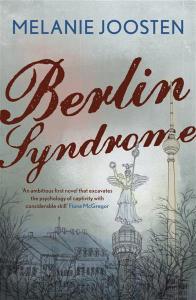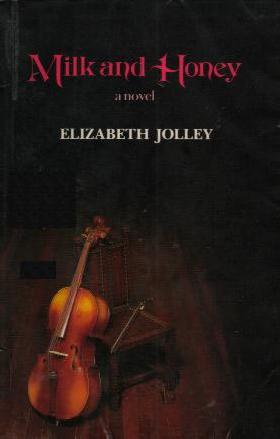 Disclaimer: This is a review copy kindly sent to me by Scribe.
Disclaimer: This is a review copy kindly sent to me by Scribe.
It is Berlin, 2006 and Claire, a woman from Melbourne, is mid-way drifting through a backpacking slash working holiday through the old Soviet countries. Claire is an architectural photographer and is working on a coffee table book of Soviet buildings. While visiting Checkpoint Charlie, Claire meets a local man, Andi, who randomly offers her strawberries. Delighted by this chance encounter, Claire sits down to chat with Andi who lets on the meeting may not have been random:
‘Sometimes I like to just sit there and complicate the world.’
He had watched for her reaction.
Clare had laughed, throwing her head back in a pantomime of enjoyment. Would it annoy him after some time? Would he stop trying to make her laugh?
‘Complicate? You mean contemplate…but it’s very funny.’
He had laughed with her. It was a good choice. He had almost gone with compensate. Consummate. Concentrate. Consecrate. Complicate had definitely been the best choice. – p. 15
Claire and Andi both connect and are attracted to each other but neither work up the courage to say anything. They go their separate ways but through another chance encounter at a bookstore a few days later, Claire goes home with Andi. The two begin a seemingly normal relationship and both Claire and Andi connect through their mutual disconnection in the world. Claire has left and given up keeping in touch with her friends and family, only sending her mother a few emails here and there to let her know that Claire is alright. Constantly travelling, Claire is searching for something that she cannot define and constantly looking into the distance.
‘But maybe we are always looking forward to something else,’ he said … ‘I don’t think there is anything wrong with that. Not if there are things to look forward to.’
‘It is impossible to be present in the present.’ [Claire] – p. 51
Andi only has his father with whom he shares a stilted relationship. Both are alone in the world. The romance develops but it soon disintegrates into something entirely sinister beginning with a locked front door:
She felt slighted, wanted to kick something. She gave the door a half-hearted nudge with the toe of her shoe. It was one thing not to be able to get in. But not get out? How could he have forgotten she was here? How could he have locked her in? She kicked the door again, harder, and a scuff mark appeared like a rebuke. – p. 57
Andi, utterly but quite rationally in love with Claire but completely deluded, wants to ensure that she won’t be able to leave him and so virtually keeps Claire locked in his apartment. He brings her gifts and does not harm her, hoping that Claire will soon warm to the idea and return his love once again. Like most lovers, Andi wants to save Claire:
‘Running away? What have I [Claire] ever run away from? You don’t know me at all!’
‘I’m just trying to help. I’m giving you a place just to be yourself. In the moment, not looking to the future. That’s what you said you wanted, isn’t it?’ He is doing this for her. Why can she not see that? – p. 97
Andi lives in an isolated apartment block and have taken away all forms of communication from Claire. Trapped, Claire eventually reforms a rather twisted relationship with Andi who wants nothing but Claire.
Berlin Syndrome is a really thrilling read and is the debut novel from a Melbourne writer. The prose is sparse but polished and, I found, very elegant. The small, claustrophobic cast was well drawn and in a rather bizarre sense, both Claire and Andi really complemented one another. They were really two lost souls and you felt for their loneliness and disconnectedness. I’m wondering if the title is a play on Stockholm Syndrome? I don’t want to put anybody off but if you liked Room by Emma Donoghue or Before I Go to Sleep by S. J. Watson, then you’ll probably like this too because it’s in a similar vein.



